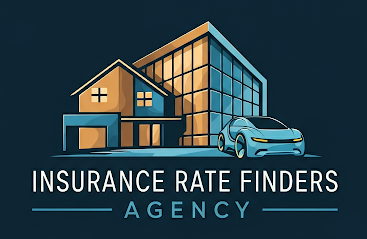
As of 2018, 30.2 million small businesses were operating in the United States, and 50% were home-based businesses. A home-based business offers many benefits, including low costs, tax benefits, flexibility, and freedom from commuting. Like any business, a home-based operation requires insurance. Various insurance options are available, so home business owners can choose what best meets their needs.
Why You Need Home-Based Business Insurance?
While home-based businesses may run on a small scale, they face many of the same contingencies as their larger equivalents. These include auto accidents, third-party claims, and damage to business-owned property. To guard themselves against losses, business owners must have adequate insurance.
Some home-based business owners believe their homeowner's insurance will cover claims resulting from their commercial activities. This is a wrong assumption because most homeowners' policies include business-related exclusions and restrictions. For example, many policies do not include structures not attached to the dwelling (like a detached garage or shop building) if used for business purposes.
Types of Coverage
Home business owners have three primary options for insuring home-based business operations. They can include business exposures via endorsements to a homeowners policy, buy an in-home business policy, or buy a business owner's package policy. Which choice is best depends on the size and nature of the business operations and insurance cost.
Homeowners Policy Endorsement
Many home-based businesses need equipments like printers and computers. Unfortunately, most homeowner's policies provide a shallow limit (typically $2,500) for devices on the property premises used for business purposes. Business owners may increase that limit by buying an endorsement for a reasonable additional premium.
Business owners may also have the choice to add a homeowner's liability endorsement to their policy. The policy covers third-party claims by customers or delivery people for damages sustained on their premises.
In-Home Business Policy
An in-home home business policy provides more comprehensive coverage than a homeowner's endorsement and may cost less than $300 per year. It's a middle ground between commercial insurance and homeowner's policy. The process typically includes business personal property and general liability coverages. Optional coverages like business income, essential documents, and accounts receivable may also be available.
Business Owners Policy
The home business that needs more coverage than an in-home policy can choose a business owners policy (BOP). A business owner's policy is a commercial package policy devised for small businesses. It includes business income, commercial property, and general liability coverages.
The general liability section includes claims for property damage or bodily injury, including claims against the business that arise from its products. It also includes Personal and Advertising Injury Liability and claims based on danger to rented premises. A wide variety of endorsements are available for broadening or restricting coverage. Small businesses pay an average annual premium of $1,191 for a BOP.
Other Coverages To Consider
Homeowners' policies, in-home business policies, and BOPs offer general liability and property coverages only. Home-based businesses should also consider the following coverages.
- Commercial Auto Insurance
- Errors and Omissions (Professional) Liability
- Workers' Compensation Insurance
Like all other businesses, home-based businesses must comply with state workers' compensation laws. The duty to buy workers' compensation insurance typically depends on the number of employees a business employs. Many states require businesses to obtain coverage if they have one or more workers.
Most states don't need business owners to purchase workers' compensation insurance if they don't employ them. Many states allow business owners to buy coverage for themselves.
To know more about the different types of insurances you should consider, do contact me.


